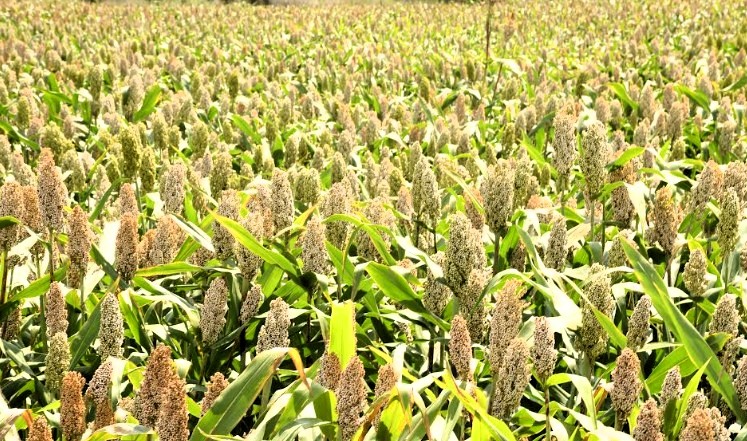Along a rugged footpath lined with thorny shrubs lies a 35-acre stretch of thriving sorghum fields in Kobulwo, Kerio Valley, Elgeyo Marakwet County. This transformation is driven by members of the Kobulwo Farmers Cooperative Society, who have embraced contract farming as a route to financial independence.
Standing out among them is 27-year-old Yusuf Kipchumba, a graduate in Animal Health and Production. As chairperson of the 126-member society, Kipchumba exemplifies how education and determination can transform rural livelihoods. After a short stint at a poultry farm in Uganda, he returned home, seeking peace and control over his life through farming.
“Sorghum thrives in Kerio Valley’s harsh climate,” he explains. “It matures in 3–4 months, and one acre yields 15–20 bags of 110kg each.” With a contract from Crops Soko guaranteeing KSh 52 per kilogram, farmers can earn KSh 70,000–90,000 per acre. Kipchumba, who has 3.5 acres, expects over KSh 250,000 this season.
However, the journey has not been easy. In 2023, a buyer reduced prices post-harvest due to a lack of formal agreements. This experience prompted the cooperative to sign binding contracts, securing fair prices this year.
Challenges remain, including water scarcity, which limits farmers to one planting season. Kipchumba advocates for irrigation infrastructure to boost production and income. Labour costs are also high farmers hire about 20 workers per acre for harvesting, paying KSh 300 daily, and additional labour to scare away birds. Shelling and winnowing sorghum also demand extra manpower, raising production costs.
Wildlife intrusion poses another threat, as elephants from nearby Rimoi Game Reserve often destroy crops. Kipchumba urges authorities to fence the reserve to protect farms.
Despite these obstacles, sorghum farming has transformed lives. Beyond income, it provides fodder for livestock during dry spells. Kipchumba shares his knowledge with fellow farmers on proper feed storage to ensure year-round availability.
He calls on youth to embrace agriculture instead of waiting for elusive white-collar jobs. “Farming pays,” he emphasizes, noting that his family sustains itself comfortably through agriculture. His wife, a Bachelor of Education graduate, actively supports the venture, demonstrating farming as a family-driven enterprise.
Looking ahead, the cooperative plans to partner with seed companies for certified seed production, introduce value addition, and even establish a petrol station to diversify income streams. Kipchumba envisions a future where farmers achieve self-reliance and economic growth through agriculture-driven initiatives.

